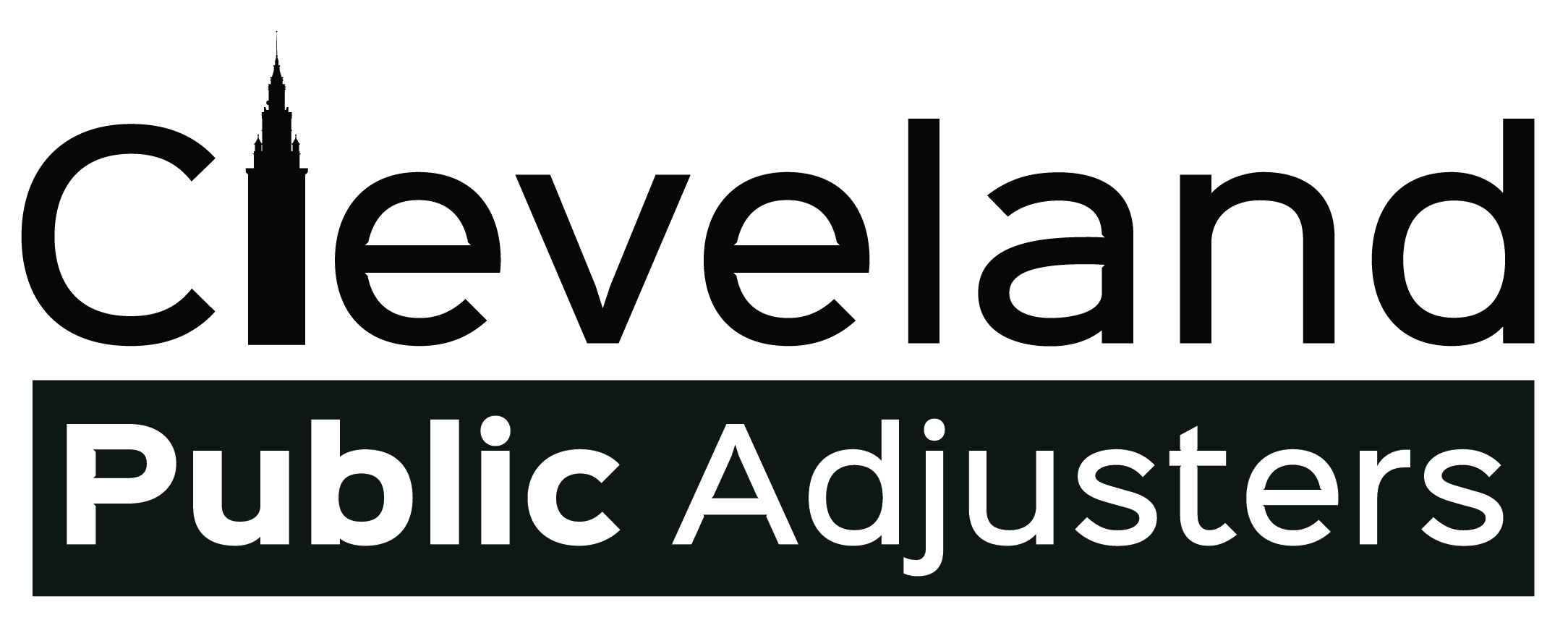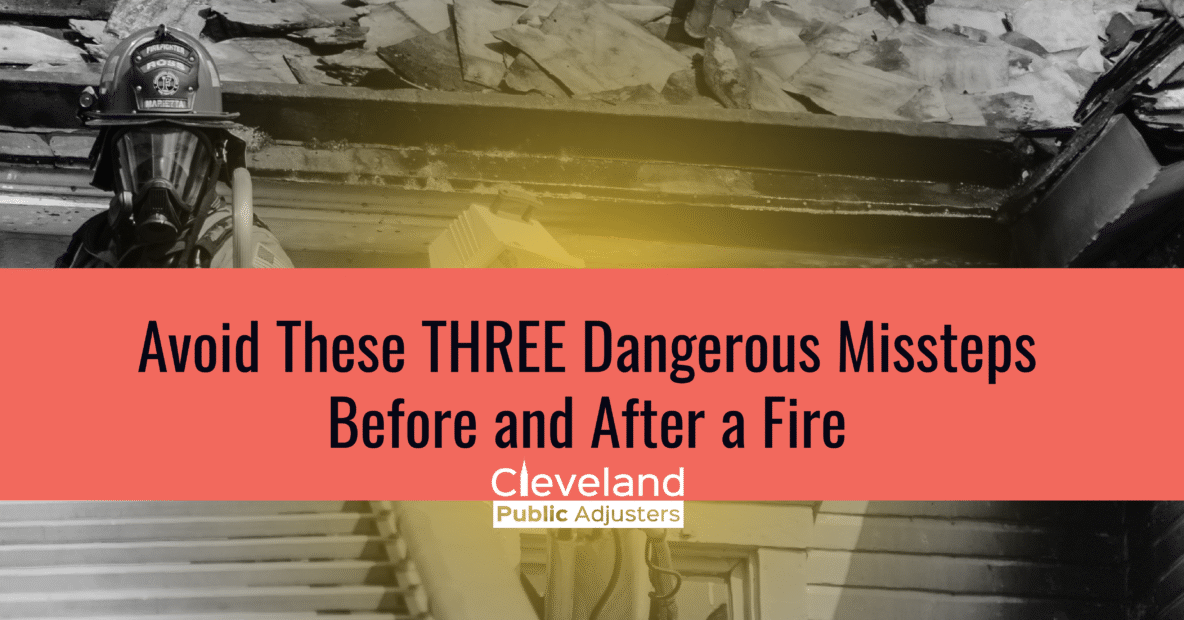Avoid These Three Dangerous Missteps Before and After a Fire
Our experience helping property owners after fires has taught us one thing: taking the right steps from the start can make all the difference. This Fire Safety Month, we’re sharing the three biggest mistakes property owners make before and after a fire — and how to avoid them.
Mistake #1: Not Reviewing Your Policy Until It’s Too Late
Many property owners assume their insurance company will take care of everything after a fire. But too often when disaster strikes, they discover too late that their coverage isn’t enough. Over the years, we’ve seen claims derailed by outdated coverage limits, missing endorsements, and misunderstandings about what’s actually included in a standard policy. Common oversights include:
-
Shopping for an insurance policy based on the best price instead of the right protection.
Going for the lowest premium can cost you the most later. If your policy limit isn’t high enough, that “great deal” may leave you without sufficient funds to rebuild.
-
Failing to update coverage limits after renovations or rising construction costs.
Many property owners renovate, add square footage, or upgrade materials without realizing those changes increase replacement costs. If your policy hasn’t been adjusted to reflect those updates—or to account for inflation in construction prices—you may find yourself underinsured when it matters most.
-
Carrying actual cash value instead of replacement cost value coverage.
Policies that pay only actual cash value (ACV) pay the cost to repair or replace your property based on current value, factoring in age and wear-and-tear. That means the ACV settlement for your old, outdated TV is not going to be enough to afford a TV that’s on the market today. On the other hand, replacement cost value coverage (RCV) pays what you will truly need to replace or repair your damaged property.
-
Missing special riders for detached structures, business equipment, or high-value art and jewelry.
Don’t wait to learn the hard way what your standard residential policy doesn’t cover. We’ve seen livelihoods go up in smoke because policyholders didn’t add the right coverage for the business property or equipment they keep at home.
💡 Review your property insurance policy every year. Your coverage should evolve as your property does. Need an expert eye? Contact us for a complimentary review of your policy.
Mistake #2: Neglecting Routine Fire Safety Maintenance
Most property fires start with something small — a stove left unattended, a space heater too close to furniture, or an overloaded electrical outlet. These are the fires we see again and again, and nearly all of them are preventable. The most common causes of property fires fall into five categories. A few minutes of maintenance and mindfulness can drastically reduce your risk.
-
Cooking and Kitchen Fires
Nearly half of all property fires start in the kitchen. The most common cause? Walking away from a pot or pan in use. Stay close while cooking, especially when using oil or high heat. Keep towels, paper products, and packaging well away from burners. If a grease fire starts, never throw water on it — smother it with a lid, a fire blanket, or use a Class K extinguisher.
-
Heating Equipment
Heating equipment is one of the leading causes of property fires, particularly during colder months. Maintain at least three feet of clearance around space heaters, fireplaces, and furnaces. Plug space heaters directly into a wall outlet (not an extension cord), and turn them off before leaving the room or going to sleep. Schedule annual inspections and cleanings of chimneys and furnaces to reduce buildup that can spark a fire.
-
Open Flames
Candles cause countless fires every year. Treat any open flame as a potential ignition source. Blow out candles when leaving a room or going to bed, and always use sturdy, tip-proof holders. Consider switching to flameless LED candles for the same glow without the risk.
-
Smoking Tobacco
Smoking-related fires are less frequent today, but they remain among the deadliest. A single smoldering cigarette can ignite furniture or bedding hours after being discarded. Always smoke outside, use deep ashtrays, and douse cigarette butts in water before disposal. Never smoke in bed or near oxygen tanks.
-
Electrical Systems and Wiring
Electrical malfunctions are one of the most damaging and overlooked causes of property fires. Avoid overloading outlets, and don’t daisy-chain power strips or plug too many appliances into one circuit. If your property was built before the 1950s, it may still have knob-and-tube wiring, which isn’t designed for modern electrical loads. Have a licensed electrician inspect older systems and upgrade wiring and breakers where needed.
💡Don’t wait until a fire happens to inventory of your belongings! Make a list — or even better, take a video — of your furniture, electronics, and other valuable items, including the contents of drawers and closets. This living document will be crucial to prove the value of your loss to your insurance carrier.
Mistake #3: Filing a Fire Claim Without a Public Adjuster
After a fire, many property owners immediately call their insurance company. That impulse is understandable, but it’s also where many people go wrong. Too often when we offer our public adjusting services to a property owner after a fire, we hear: “I’ll just wait to see what my insurance company offers me.”
But by the time the insurance carrier makes a settlement offer, it’s nearly too late.
Think about it. The insurance company’s adjuster works for their employer’s interests, not yours. Their goal is to minimize the payout, which is how the big insurance companies save millions every year in underpaid insurance claims.
That’s why being represented by a public claims adjuster is so crucial. We are licensed by the state departments of insurance to advocate for the consumer and negotiate a fair insurance settlement. Our goal is to document every square foot of the property, and every damaged item, to calculate the true and total value of the loss.
When the insurance company’s adjuster presents a settlement offer, they’ve already set the starting line. Any further negotiation is anchored to their number, which was set to favor them.
But if a public adjuster is involved at the beginning of the claims process, we set the settlement expectation, making it difficult for the carrier to low-ball their offer.
And if they do counter with a low offer? You’ll have a public adjuster in your corner and at your side to fight for every dollar.
💡 If you experience a property fire or other serious disaster, tip the odds in your favor by engaging a public adjuster from the start of the claims process. The insurance company has its own adjuster. You deserve one too.
Closing Thoughts
Fire Safety Month is about prevention — but it’s also about preparation. A few proactive steps today can make all the difference tomorrow.
At Cleveland Public Adjusters, we help property owners protect what matters most, before and after disaster strikes. If you experience a property fire, make your first call to 911 — and your second call to Cleveland Public Adjusters at 216-633-9843 or help@clevelandpa.com. We’ll guide you through the process, protect your interests, and help you rebuild with confidence.

